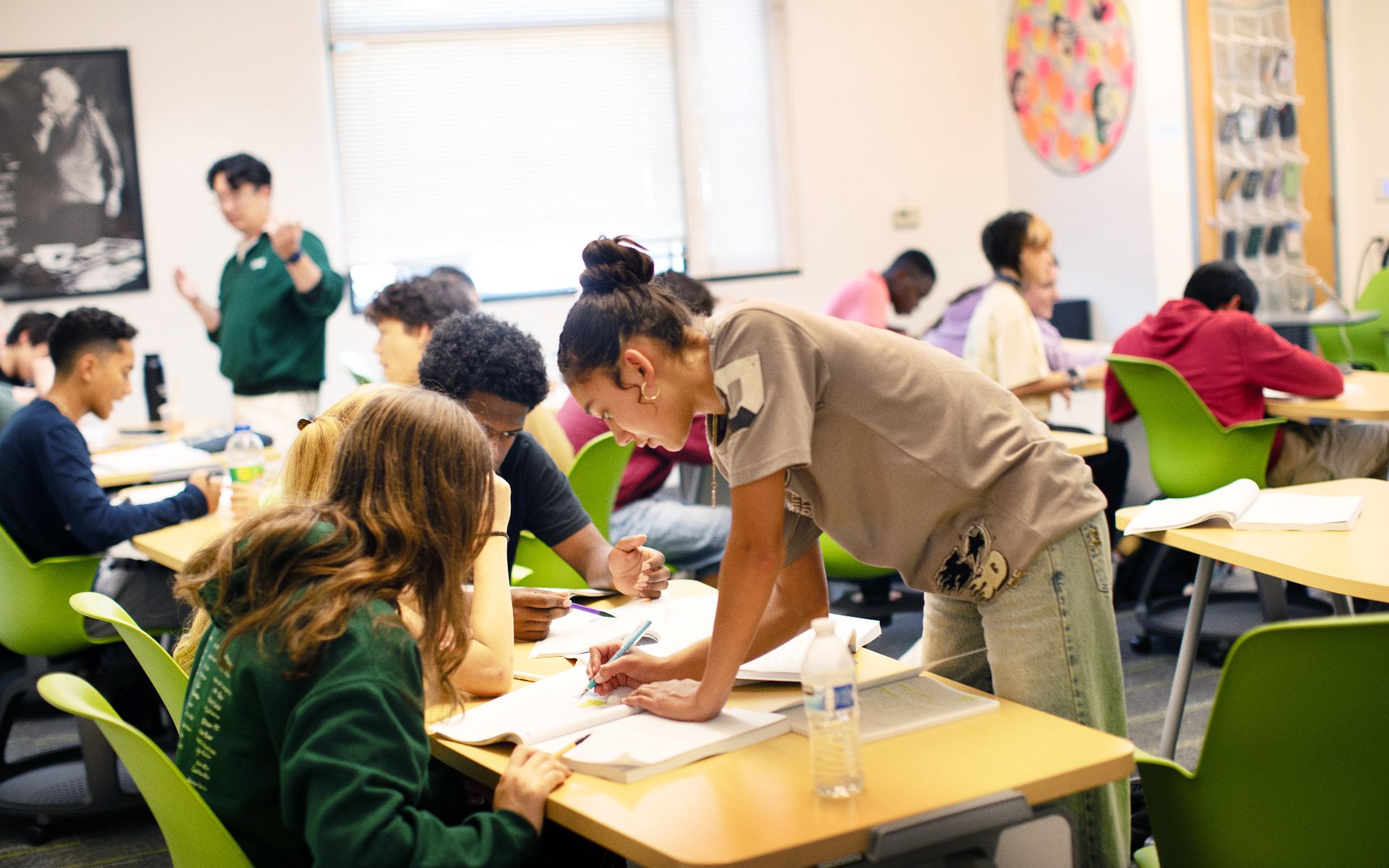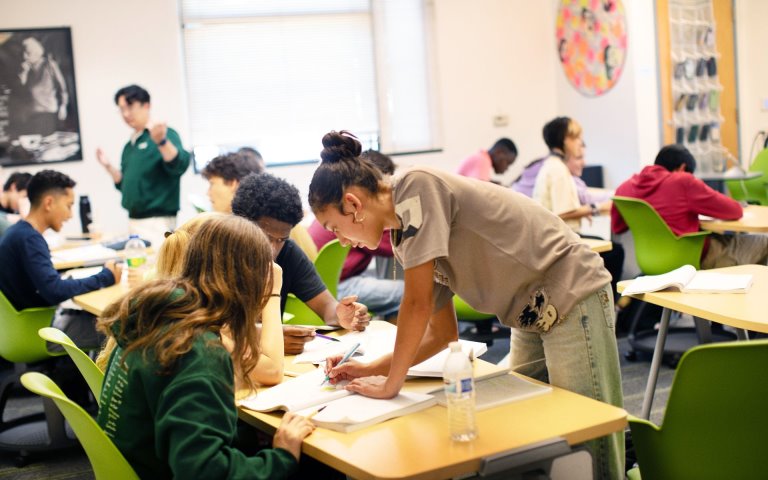Equity and social impact work at Drew aims to cultivate a joyful and inclusive community–one where each of us takes personal responsibility for our collective progress. We strive to foster an environment where equity and respect for others are core values, and where members of our diverse community can show up as their authentic selves.
Finding your voice is a process that requires meaningful collaboration and the cultivation of empathy within a community. It demands honest self-work and the willingness to engage in community with discomfort, to confront difference and opposition both within and around you.
Our Goal
of Equity and Social Impact Work at Drew
- To allow students to learn about themselves as multifaceted individuals.
- To learn about and how to respect the differences and similarities of others.
- To broaden awareness about the world and how it interconnects with one's own life.
- To develop cultural competency.
- To build a community of trust, honesty, openness, dialogue, and respect.
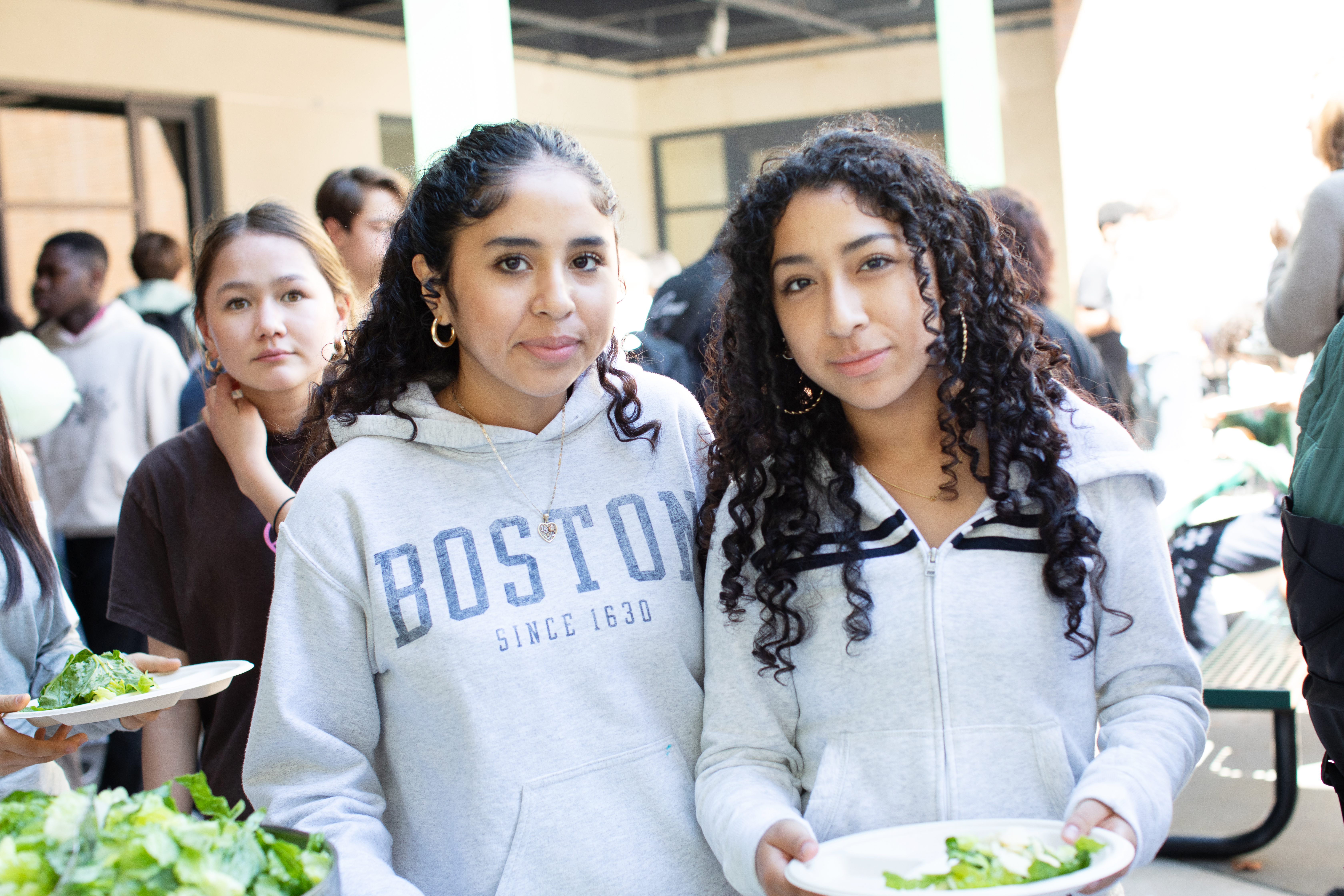
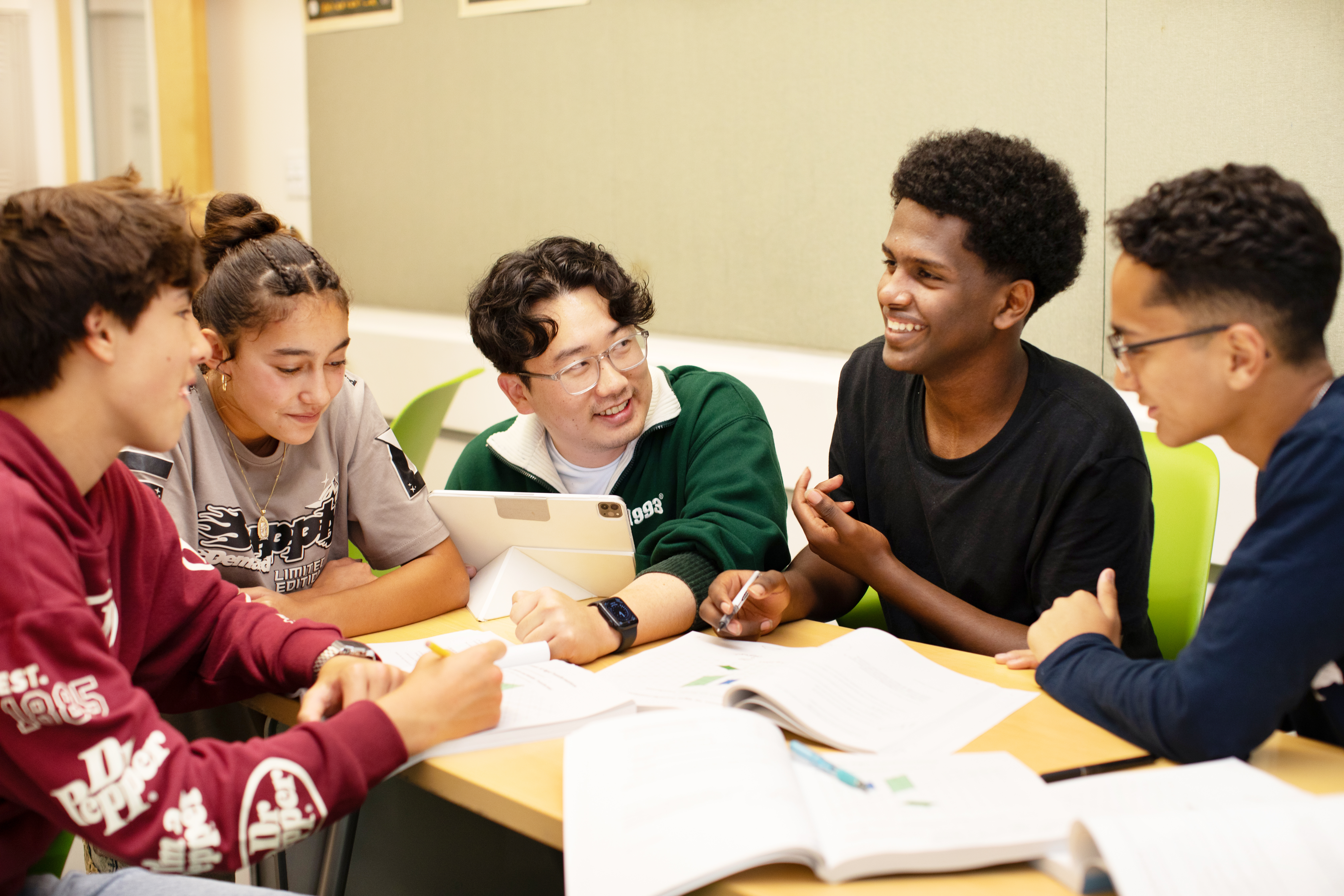
Our Commitment
to Diversity, Equity, Inclusion, and Belonging
In order to allow for our mission to empower student voice and maximize impact, the Drew community is committed to intentional anti-racist practices, equity, representation, and social justice* – that is grounded in a community of care. We bring these values to life through curriculum and programs that promote respect and belonging.** Drew’s approach reflects our belief that social justice work is grounded in appreciation for, expression of, and attention to each person’s intersecting identities.
By creating an inclusive environment without tolerance of discrimination, Drew provides the opportunity for continuous challenges and growth. We hold ourselves accountable to these values through our policies and practices.
*Social Justice: A process, not an outcome, which (1) seeks fair (re)distribution of resources, opportunities, and responsibilities; (2) challenges the roots of oppression and injustice; (3) empowers all people to exercise self-determination and realize their full potential; (4) and builds social solidarity and community capacity for collaborative action.--Center for the Study of Social Policy
**Belonging: “More than just being seen or feeling included, belonging entails having a voice and the opportunity to use it to make demands upon society and political institutions. Belonging is more than having access; it is about the power to co-create the structures that shape a community.” (from “Redefining Who Belongs”--The Othering and Belonging Institute)
Self-Reported Racial and Ethnic Groups
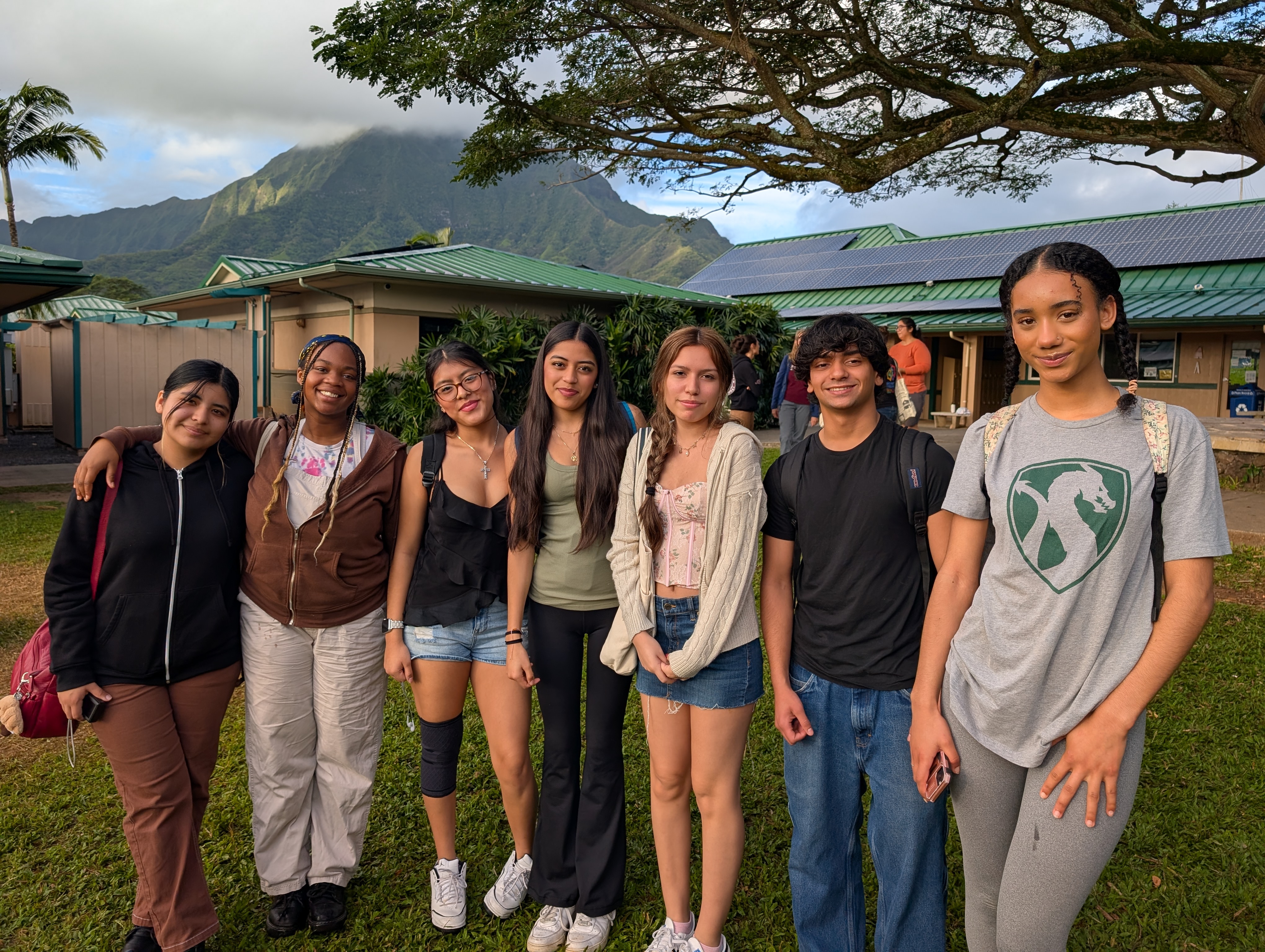
Affinity Groups
Led by students and supported by faculty, affinity groups give teens the chance to explore identity and community in ways that feel real and relevant.
Affinity Groups are identity-based spaces where students come together around shared lived experiences, including race, gender, sexual orientation, religion, and more. These groups offer a place to connect, process, reflect, and support one another without having to explain where you’re coming from first.
They’re student-led and faculty-supported, grounded in community, and part of Drew’s larger commitment to building a school culture rooted in empathy, equity, and belonging. Affinity Groups are one way students explore identity and help shape a community where everyone can show up as their full selves.
What Equity in Action Looks Like at Drew
The commitments outlined in Drew’s Commitment to Diversity, Equity, Inclusion, and Belonging are both aspirational and actionable. They reflect our shared values and the standards we strive to uphold—not just in policy, but in practice.
At Drew, we recognize that this is deeply human work. Building a truly inclusive and equitable community requires consistent care, reflection, and accountability in every interaction, every day. It is ongoing work—complex, nuanced, and shaped by our relationships with one another.
We are not “there” yet, and perhaps never fully will be. But in that gap between our ideals and our realities lies the aspiration we return to daily: to live out our values with integrity, humility, and a commitment to growth.
Equity at Drew isn’t just a value; it’s something we practice every day. Here are a few ways that commitment shows up across our community.
- Courageous Conversation About Race - Faculty and staff have completed over 20 hours of training and conversation using the Courageous Conversation About Race protocol, exploring personal and professional experiences with race in small groups and affinity spaces. These tools are also used with students to foster thoughtful, student-centered discussions on identity, bias, and belonging.
- Ongoing Professional Development - All faculty and staff participate in ongoing professional development to deepen cultural competency, examine bias, and build an actively inclusive school environment.
- Robust Learning Support - Through personalized learning plans, differentiated instruction, and access to one-on-one tutoring through the Herbst Learning Center, Drew students receive the academic support they need to thrive on their terms.
- Tuition Assistance - Drew’s Tuition Assistance program ensures that all students can fully participate in the life of the school, from academics and extracurriculars to DEALL Week and student leadership.
We believe identity should be visible, valued, and woven into all aspects of school life. Here are some examples of how we center representation in meaningful ways.
An Integrated Approach to Mental Health
Mental health is woven into the culture of the school, not treated as an add-on.
- Bring Change to Mind: A student-led club and steering committee focused on mental health advocacy and peer support
- Annual Mental Health Summit: A schoolwide event that fosters conversation, awareness, and connection
- Intersectional Focus: We explore how identity–race, gender, orientation, background–shapes mental health experiences and needs
A Range of Forms of Expression
At Drew, students are encouraged to express themselves in ways that feel authentic.
- Voice, body, and language are tools for sharing, reflecting, and building understanding
- Arts and performance give students powerful platforms to bring their ideas into the wider community
Curriculum That Reflects Identity and Experience
Our academic program incorporates real-world complexity and invites deep engagement.
- Courses include content related to race, ethnicity, class, gender, and sexual orientation
- These conversations are not isolated—they’re integrated across disciplines and grounded in inquiry
Social justice at Drew isn’t a one-time lesson. It’s a lens we apply across classrooms, conversations, and community life. Here are a few ways we help students engage with identity, equity, and impact.
A Culture of Reflection
We start with reflection on ourselves, our stories, and the perspectives we bring to community:
- Students explore the idea that everyone has their own why; the lived experiences that shape how they engage.
- Teachers encourage authentic, challenging questions in the classroom
- Affinity Groups and Shanti Alliance create space for identity, dialogue, and advocacy
Advisory That Breaks Beyond the Surface
Equity and social justice are built into our Advisory curriculum, not added on:
- Students reflect on identity, equity, and their place in the world
- Every student is seen, heard, and encouraged to grow through intentional connection
Senior Project with Purpose
Each Drew student completes a Senior Project, a deep dive into a personal interest and a social justice issue that matters to them. It’s not just a capstone. It’s the culmination of four years of inquiry, reflection, and action.
Learning for Justice Framework
Drew integrates Learning for Justice’s Social Justice Standards across disciplines. Topics include Diversity, Identity, Justice, and Action.
- These themes aren’t isolated to one class. They’re part of how we teach students to think critically, act ethically, and contribute meaningfully.

